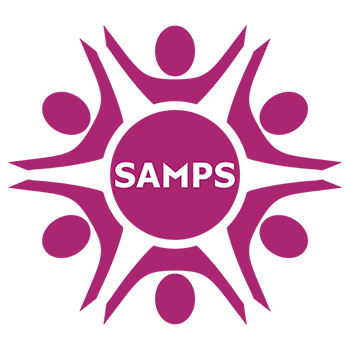A Visit to the Myeloma Research Lab
One afternoon at the end of July, a group of SAMPS directors met at the base of the TRW (Teaching, Research and Wellness) tower at the Health Campus of the University of Calgary. We were taken up to the myeloma research lab run by Dr. E. Neri and Dr. N. Bahlis. We entered a large space filled with different areas of activities.
First we looked through a glass door into a freezer where samples of bone marrow aspirates were stored. All of the patients who have had a bone marrow biopsy will have their samples here, stored in liquid nitrogen, at minus 80C. These samples are used in research for genome sequencing. These studies allow the analysis of the genomic make-up of the tumour cells and the identification of the alterations driving the tumours and/or causing resistance to anti-myeloma drugs.
Whole genome sequencing of DNA for example, can help to determine whether or not a patient will progress from MGUS, to smoldering myeloma or to full blown myeloma. Deletions, insertions and other abnormalities in the DNA can also be found by using the ‘Whole Genome Sequencing System’ and can be used to identify mutations that can be targeted with specific drugs.
The sequencer system is set up in a separate room, where the sample, after been processed, is put into ‘chips’ and put into the machine for sequencing and analysis. The lab has two sequencers: The Ion Proton system and the Illumina NextSeq. The Ion Proton is a fast short read sequencer that generates 60-80 million reads in a 2.5h run using a semiconductor chip that measures the proton released when a nucleotide is incorporated into DNA strand. The Illumina NextSeq allows a fast DNA-to-results workflow enables rapid sequencing of exomes, targeted panels, and transcriptomes in a single run, with the flexibility to switch to low- or high-throughput sequencing as needed and is the one mostly used right now by this lab.
After an explanation of this Genome system, we left this part of the lab. We were introduced to a summer student who was funded by a donation from SAMPS.
Then we passed through an area with shelves of reagents sitting above many light microscopes. Technicians were busy with their work but stopped to wave at us.
At the end of our tour, Drs. Bahlis and Neri took us into a meeting room where they described some of their latest work. They are working in the area of CAR T-cell therapy.
Chimeric antigen receptor (CAR) T-cell therapy is a type of cancer immunotherapy. It helps the body’s own immune system find and attack cancer cells. CAR T-cell therapy is also sometimes talked about as a type of cell-based gene therapy, because it involves altering the genes inside certain immune cells to help them attack the cancer.
To make this treatment, immune cells called T cells are taken from the person’s blood during a process called leukapheresis. Blood is removed through an IV line and goes into a machine that takes out the T cells. The remaining blood then goes back into the body. This process typically takes a few hours, and it might need to be repeated.
The T cells are then frozen and sent to a lab, where they are genetically altered so they have specific receptors (called chimeric antigen receptors, or CARs) on their surface. These receptors help the T cells attach to proteins on cancer cells. The T cells are then multiplied in the lab, which typically takes several weeks.
Once the CAR T cells are ready, the patient gets chemotherapy for a few days to help prepare the body. Then the CAR T cells are infused back into the patient’s blood, where they can seek out the cancer cells and help the immune system attack them.
Idecabtagene vicleucel (ide-cel, Abecma) and ciltacabtagene autoleucel (cilta-cel, Carvykti) are CAR T-cell therapies that target the BCMA protein, which is found on myeloma cells. Either of these treatments can be used in patients who have already received several (typically at least 4) other types of treatment for their multiple myeloma.
This treatment is given in the hospital, where the patient is monitored in case of having serious side effects. In this research lab, they have generated a novel anti-BCMA CAR T using a prosurvival gene bcl-xl that increase the persistence of T cells maintaining their anti-MM effects in vitro and in animal model. The pre-clinical results observed with this Calgary-made CAR T are so encouraging that a clinical trial using this product for myeloma patients is underway and planned for early 2023.
We are very grateful to Drs. Neri and Bahlis for showing us their research lab and describing their world.
- by Nancy Shamanna, SAMPS Director at Large



